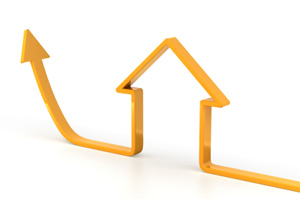Thu 7 Jun 2012
House Prices and Sales Continue to Climb in the GTA
Posted by Cynthia under Home Prices in GTA, Home Prices in Mississauga, Mississauga Home Sales, Mississauga Real Estate
Comments Off

If you can afford it, don’t put off till tomorrow what you can do today.
It doesn’t matter if you look at homes sold or homes for sale in Mississauga, Oakville, Etobicoke or anywhere else in the GTA, the news is always the same; sales are up, prices are up and the market is almost as hot as the hottest year ever. Interest rates are low and demand is high creating a very frustrating market for home buyers.
In the 905 area code average prices are up 8% for a detached home (average being $579,892), 10% for a semi detached (average being $400,442), 6% for a townhouse (average being $359,382) and 8% for a condo (average being $292,416). The questions still remains.. when will it stop?
No one has a crystal ball but in the short term it doesn’t look like much is going to change. Due to the European debt crisis it looks like interest rates are going to remain unchanged for a while. Even if they do start to inch up prices will go up before they start to go down. Similar to the stock market, the GTA real estate market tends to panic at the slightest bit of good or bad news. The difference is it takes a bit longer for any impact to be felt in the real estate market largely due to the fact that a property can’t be purchased on the internet in 5 minutes as can be done with stocks purchases.
If and when interest rates go up the likely scenario would be for the next month there would be an additional of surge of buyers on the market who want to take advantage of current rates before further interest rate increases are posted. These would be the buyers that were sitting on the sidelines either waiting for prices to go down or saving up more money. This surge of buyers would result in a steady increase in prices until the demand was satisfied or the buyers went back to the sidelines in frustration. At that point, and if rates continued to climb, a slow decrease in price could follow. The length of time it would take to see any meaningful decrease in price would be approximately 6 months. If rates continued to increase during that 6 months then a buyer may not be any better or worse off then had they bought a house 6 months before. It’s the damned if you do, damned if you don’t scenario.
All I know is I lost 40% on my RRSPs. In my book stocks are out real estate is in. Similarly my advice would be, if you can afford it, don’t put off till tomorrow what you can do today.
–
Cynthia Shaw, is a licenced Mississauga Real Estate Agent with Sutton Group Quantum Realty Inc., Brokerage in Mississauga Ontario. Let Cynthia’s extensive knowledge in Mississauga real estate guide you in purchasing your dream home.

